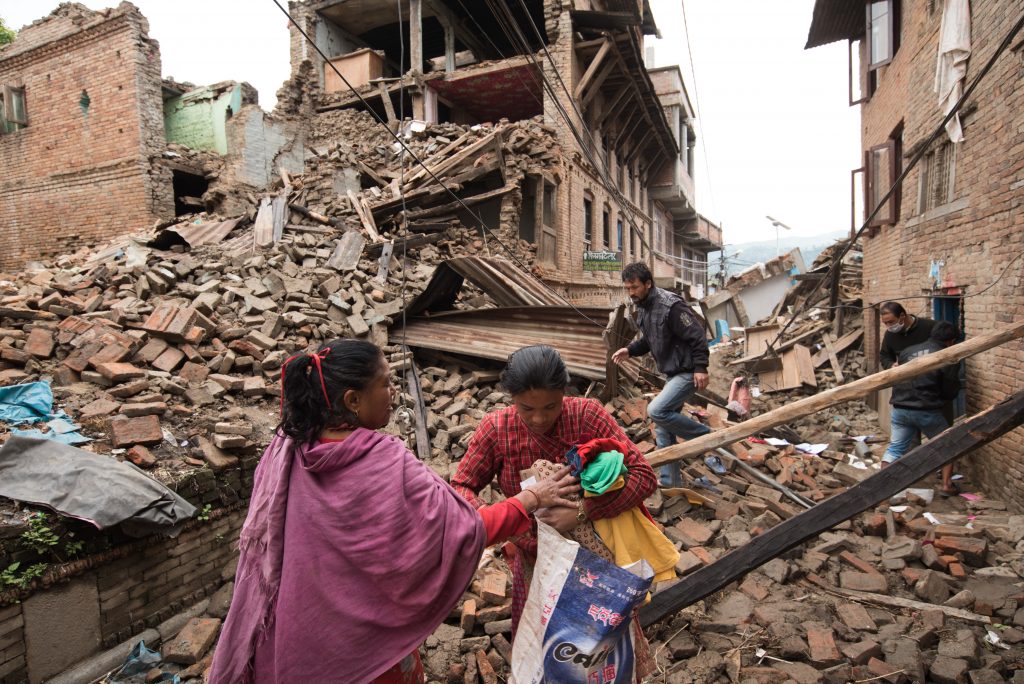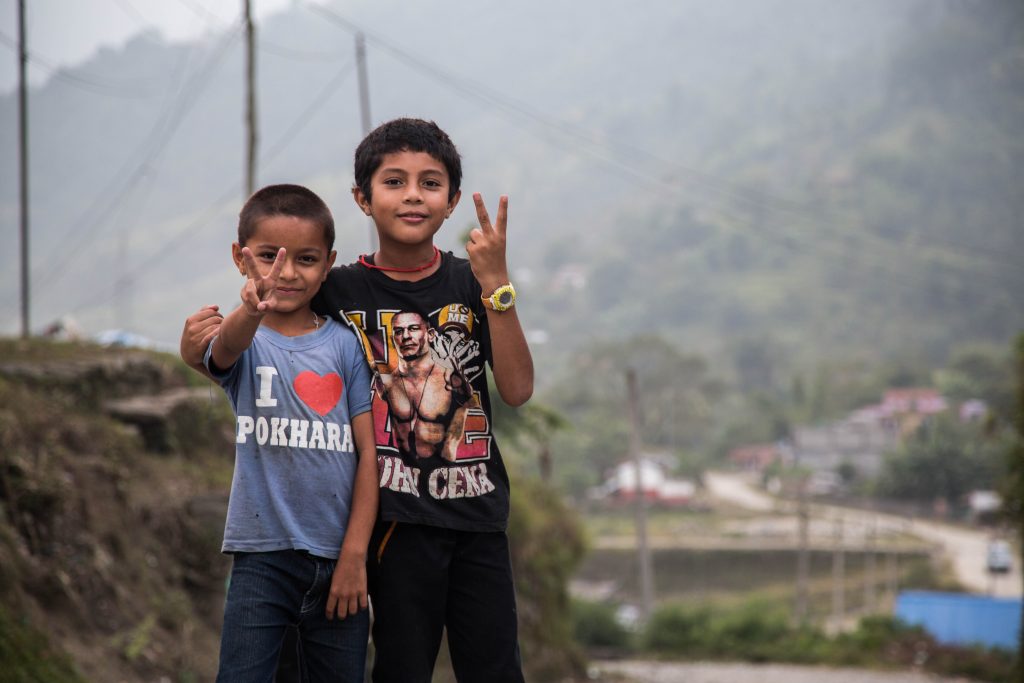COVID-19 is causing chaos around the world, infecting huge numbers of people, and, as of March 11, officially a global pandemic according to the World Health Organization. While the situation is rapidly changing, as of this writing the entire country of Italy is under quarantine, travel restrictions are in place between the U.S. and Europe, and the U.S. government has advised people not to step on a cruise ship for the foreseeable future, and telling people aged 60 and over to stock up on supplies and stay home until this all blows over. Empty “ghost planes” are flying the skies, airports are empty, the NBA season is suspended, music festivals are canceled, Tom Hanks and Rita Wilson are infected, and huge numbers of people are working from home. Needless to say, a lot of people are not participating in adventure travel at the moment.
While the adventure travel industry is suffering from the slowdown, this isn’t the first time a major event has impacted the industry, highlighting the importance of resilience. Over the years, incidents ranging from natural disasters to terrorism to financial crises have affected the industry. While it is important to respond to the current COVID-19 situation (and ATTA offers a variety of resources to help partners cope with the current crisis), it’s also a good time to think about resiliency in general.
This certainly isn’t the first time ATTA members have faced a challenging situation. In 2015, a 7.8-magnitude earthquake shook Nepal. Nearly 9,000 people died, and many areas were severely damaged by the quake and aftershocks. ATTA CEO Shannon Stowell says at the time of the quake, nearly 100 ATTA members offered trips to Nepal. He said initially ATTA focused on efforts to gather gear, such as stoves, tents, sleeping bags, and other items to transport to people in the affected areas. However, they ran into a number of obstacles with gathering, delivering, and distributing the items. They realized the best way ATTA could help was by doing what it does best: bringing people to Nepal to experience adventure first-hand. About six months after the quake, after the initial relief rush was over, they hosted AdventureWeek Rebound in Nepal to “say Nepal is open for business,” according to Stowell.
They adapted the event to maximize what Nepal needed: media exposure letting people know they were ready for visitors. So, instead of the usual mix of buyers and media—the event is usually split half and half—they focused on bringing media to the country, including events in Annapurna and the Everest area. ATTA worked with a nonprofit on the ground to make sure everything went smoothly.
“It was a really interesting learning process for us,” Stowell says.
Greg Klassen, principal of Twenty31 Consulting says Nepal, which he describes as a “high incidence adventure destination” went from 800,000 visitors the year before the earthquake to 1.2 million three years later. This shows a destination can even recover from a devastating natural disaster.
There are many ways companies can prepare for the unexpected, whether it’s the current crisis or the next one. Stowell and ATTA Asia regional director Jake Finifrock share their tips on how to create a resilient business and be able to weather this storm—and the next one.

Obtain information from trusted sources:
To assess any situation, it is important to have accurate, unbiased information. Finifrock cautions people not to rely on social media for information on situations such as the COVID-19 pandemic. Instead, he encourages people to get their news from reputable sources.
“You want to be informed and you want your guests to be informed about what the actual risks are, how risky is it to travel to a place, and that’s based on accurate information from the medical community, from CDC and WHO,” Finifrock says.
Provide guests with options:
Having flexible policies and allowing guests to re-book or reschedule a trip leads to happy (and repeat) guests. Consider letting a guest move their deposit to a different trip in another region or push it to a later timeframe.
“I know some ATTA member companies are giving a more relaxed cancellation policy where they’re allowing people to defer any money that they have paid to either another trip to a different region that’s not affected by the coronavirus or to a future trip,” Finifrock says.
Diversify your business:
Not “putting all your eggs in one basket” is important. A tour company that only offers a specific type of product in one geographic area may be a lot more prone to the devastating impacts of a disaster in that area than a company that offers a diverse range of products in a variety of areas. Relying on a number of different products and diversifying your income stream can help a business be resilient.
“There are going to be some differences for different companies depending on where they are in the supply chain, but I think some general things are to diversify income so that nobody is dependent on only one specific style or type of customer or type of income, so diversification is important,” Stowell says.
Prepare financially:
Having some “rainy day money” set aside is always a good idea, whenever possible. Cash reserves can pull a business through rough times. Stowell also mentions having a line of credit available is useful, though he acknowledges that isn’t an option for every business or every country.
“If possible, a line of credit is a good insurance policy … The ability to access some of these things is going to be varied depending on where a company is located and the size of the business,” Stowell says.
Have a crisis management plan:
A crisis or emergency management plan isn’t just for a pandemic. It can be for just about any situation requiring an out-of-the-ordinary response, from a natural disaster to a terrorist event to a civil uprising.
“Emergency action plans are not necessarily disaster specific but it’s generally a protocol for how to approach something that comes up that you might face when you have clients on a tour,” Finifrock says.
According to Finifrock, a plan can function as a general template to follow when things don’t go as planned. It would include things like how to access medical care, what to do in the case of political upheaval, how to contact the appropriate embassy, who to contact in case of emergency, and which systems to activate.
“The worst thing a company can do is just hope that nothing goes wrong because if you’re in this industry long enough, something is bound to go wrong,” Finifrock says.

Rely on relationships to get you through:
In a tight-knit industry, building strong relationships and helping each other out can help companies make it through tough times. Stowell points to a recent situation where a DMC released small suppliers from their agreements and waived associated fees due to the COVID-19 pandemic.
“I think a lot of people in the adventure industry are going to give each other slack during this time and not demand that people hold to their agreements when it’s just too difficult,” Stowell says. “I think standing together as a community is really important.”
Stowell encourages people to do whatever they can to help each other out.
“I think leaning into your strong relationships and asking for help is a really important thing for people to do right now, and I think the adventure community is uniquely positioned for that because it is an amazing group of people,” Stowell says.
Prepare for the rebound:
While the adventure travel industry and many other industries are hurting due to the current pandemic, Stowell and Finifrock are confident the industry will be resilient and bounce back.
“I think overall we are a community that figures things out,” Finifrock says. “We’re for the most part undaunted. We may take some hits, but we’re going to find a way to keep going.”
